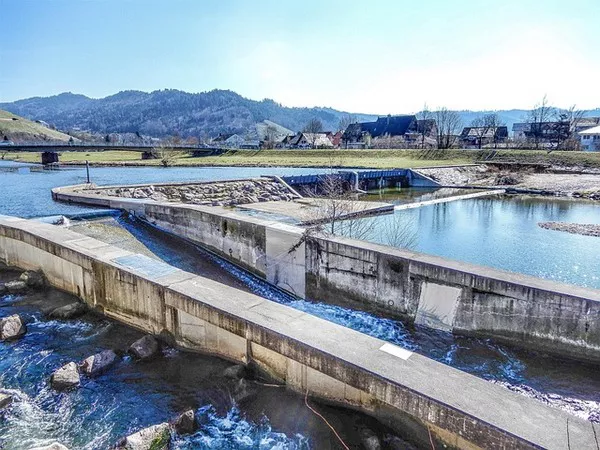Septic systems play a crucial role in managing wastewater in areas where centralized sewage treatment is not available. Among the various types of septic systems, Type 4 systems stand out as advanced solutions offering enhanced treatment capabilities. In this comprehensive article, we delve into the workings, benefits, and considerations of Type 4 septic systems.
Understanding Type 4 Septic Systems
Type 4 septic systems, also known as advanced treatment systems, employ innovative technologies to treat wastewater more effectively than conventional systems. These systems are designed to address environmental concerns by significantly reducing the amount of contaminants released into the soil and groundwater.
Components of a Type 4 Septic System
A typical Type 4 septic system consists of several key components:
Pretreatment Unit: This component removes large solids and separates fats, oils, and grease from the wastewater before it enters the treatment unit. Pretreatment helps prevent clogs and ensures the smooth operation of the system.
Treatment Unit: The treatment unit is the heart of the Type 4 septic system, where advanced processes such as aerobic treatment, filtration, and disinfection take place. These processes target pathogens, nutrients, and other pollutants, producing effluent of higher quality compared to traditional septic systems.
Dispersal System: Once the wastewater is treated, it is dispersed into the soil through a dispersal system such as a leach field or drip irrigation system. This allows for further filtration and absorption of remaining contaminants, promoting natural purification.
Key Technologies Used in Type 4 Septic Systems
Several advanced technologies are utilized in Type 4 septic systems to achieve superior wastewater treatment:
Aerobic Treatment: Unlike conventional anaerobic systems, Type 4 systems employ aerobic processes that rely on oxygen to break down organic matter more efficiently. This results in higher levels of treatment and reduced odors.
Filtration: Mechanical and biological filtration methods are employed to remove suspended solids, bacteria, and other impurities from the wastewater. This enhances the clarity and purity of the treated effluent.
Disinfection: To further reduce the concentration of pathogens in the effluent, disinfection methods such as ultraviolet (UV) radiation or chlorination may be employed. These techniques ensure that the discharged water meets stringent quality standards.
Benefits of Type 4 Septic Systems
Type 4 septic systems offer a range of benefits, making them an attractive choice for environmentally conscious homeowners and communities:
Enhanced Treatment: By employing advanced technologies, Type 4 systems achieve higher levels of treatment, resulting in cleaner effluent and reduced environmental impact.
Reduced Nitrogen and Phosphorus Levels: Nitrogen and phosphorus are common pollutants in wastewater that can contribute to algae blooms and water quality degradation. Type 4 septic systems are designed to remove these nutrients more effectively, protecting water resources.
Smaller Footprint: Compared to traditional septic systems, Type 4 systems typically require less space for installation, making them suitable for properties with limited land availability.
Long-Term Cost Savings: While Type 4 septic systems may have higher upfront costs due to their advanced technology, they often offer lower long-term operational costs and require less frequent maintenance.
Considerations for Installing a Type 4 Septic System
Before installing a Type 4 septic system, several factors should be considered:
Site Suitability: Proper site evaluation is essential to ensure that the soil conditions, groundwater levels, and land slope are suitable for installing a Type 4 system. Consulting with a qualified engineer or septic system designer is recommended to assess site suitability.
Regulatory Requirements: Type 4 septic systems are subject to regulatory requirements that vary by jurisdiction. Obtaining permits and complying with local regulations is crucial to ensure legal compliance and avoid potential fines or penalties.
Maintenance Needs: While Type 4 septic systems generally require less frequent maintenance than conventional systems, routine inspections and servicing are still necessary to ensure optimal performance. Homeowners should be prepared to follow maintenance guidelines provided by the system manufacturer or installer.
Initial Investment: The upfront cost of installing a Type 4 septic system may be higher than that of conventional systems due to the advanced technology involved. Homeowners should consider the long-term benefits and potential cost savings when evaluating the investment.
See also What Is The Final Stage In Wastewater Treatment
Conclusion
Type 4 septic systems represent a significant advancement in wastewater treatment technology, offering superior treatment capabilities and environmental benefits compared to conventional systems. By utilizing innovative processes such as aerobic treatment, filtration, and disinfection, Type 4 systems produce cleaner effluent while minimizing environmental impact. While they may require careful planning and investment, the long-term benefits of Type 4 septic systems make them a compelling choice for homeowners and communities seeking sustainable wastewater management solutions.

